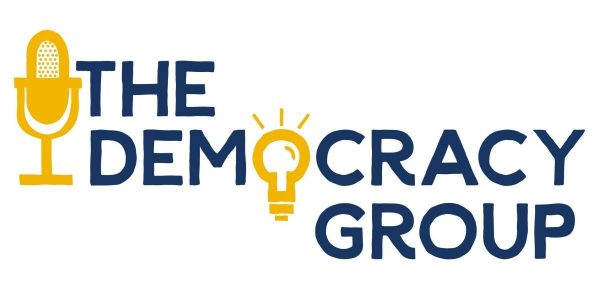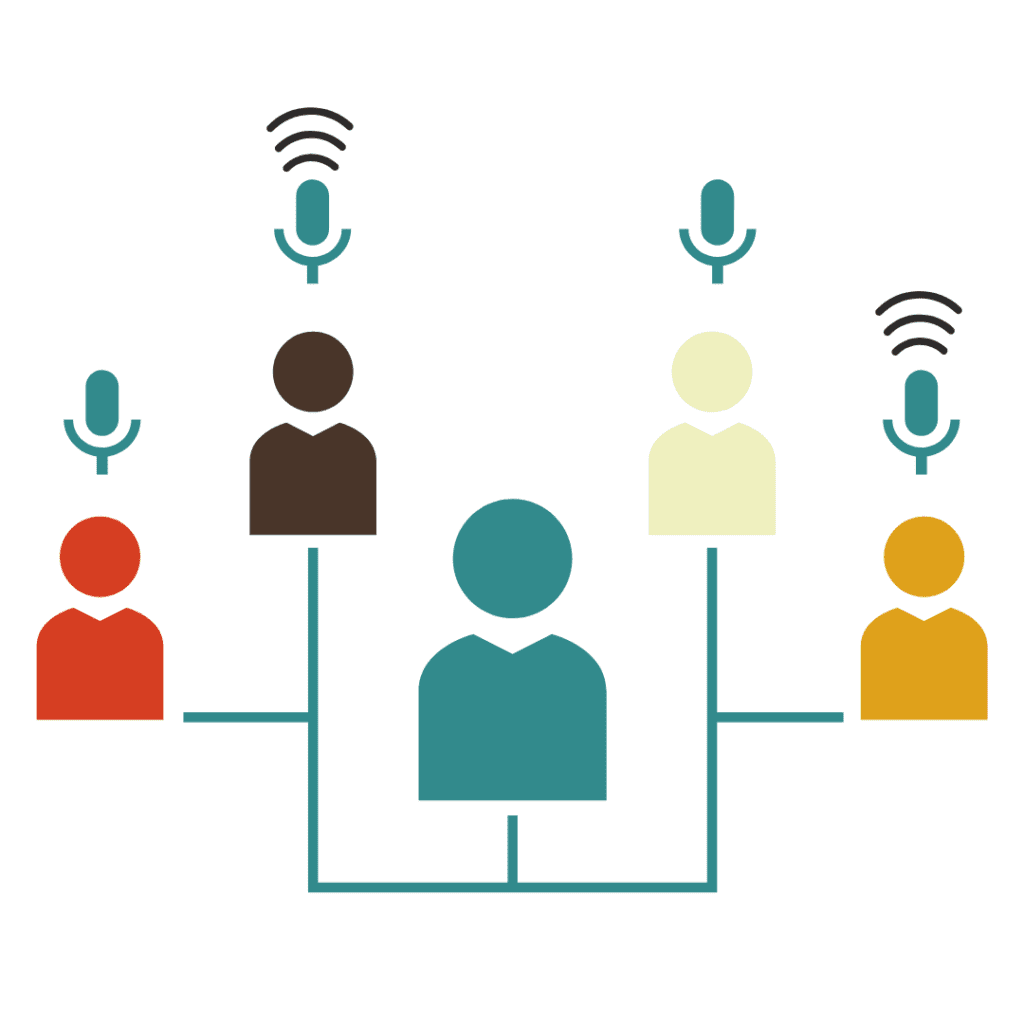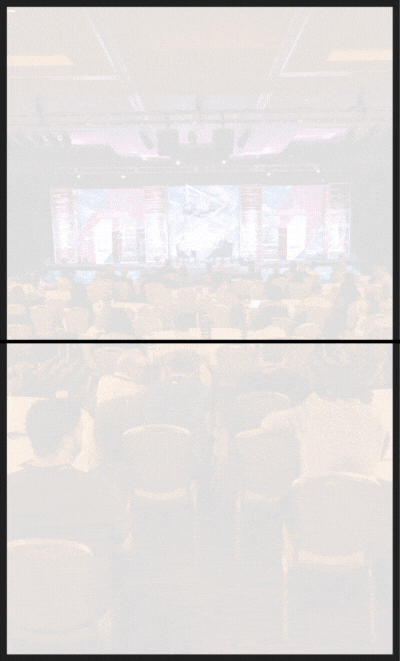I’ve found that starting and managing a podcast network has been a lot like building a startup from the ground up. It takes that mindset of seeing challenges as opportunities, and having a clear mission and vision, that motivates every decision you make moving forward.

The Democracy Group is a network of eight (for now!) podcasts that aim to help listeners understand what’s broken in our democracy and how people are working together to fix it. We see the network as a public service dedicated to creating a more informed, civically engaged electorate.
Unlike a lot of other networks, the podcasts in our network are all pre-existing shows, and the creators retain control over them. This presents its own unique set of challenges, which I’ll describe, but also offers a model that other podcast genres can explore.
The network launched March 4, and we’ve already received a lot of great feedback from listeners and other podcast creators who want to join. I’d like to share five lessons that Jenna Spinelle, our network founder, and I have learned about building a podcast network — and a few things we’re still figuring out.

1. Strive for Consistency
Listeners have to be able to easily recognize that a podcast is part of a network. This is essential in order for the network to act as a form of cross-promotion for each member show and a one-stop shop for listeners looking for shows in a particular niche or genre.
This means bringing a sense of cohesiveness to the shows in every way — visibly, audibly, stylistically, and in a sense of availability. This is easier said than done. Some examples of this include:
- Adding our network logo to each individual show’s logo
- Creating an audio ID (a short, unique and recognizable sound/music riff) for the end of each podcast episode of every member show *still in the works
- Building a social media push across all platforms surrounding an official launch date
- Making all shows available on all major listening platforms
We aim for diversity in the perspectives being shared but a consistency in the overall goals set by our member podcasts.
The big picture to keep in mind when it comes to cohesiveness is making sure all of your member shows are united under one mission and vision. Whenever we consider adding a new show to the network, we make sure it aligns with what the Democracy Group is trying to do.
That’s not to say every podcast should be exactly the same — that would be boring, and the content we push out would be overly repetitive. Instead, we aim for diversity in the perspectives being shared but a consistency in the overall goals set by our member podcasts.

2. Prepare to Be Flexible

If you are looking to start a network by bringing together shows that already exist, be prepared to be flexible. Everyone has their own system, their own schedule, and their own priority list. Decide before starting how flexible you are willing to be — this will be dependent on your goals you set beforehand.
If your primary goal is to make money, then you probably want more reliable, highly produced, and consistent podcasts in your network. If your primary goal is to spread some great content surrounding a bigger mission, then maybe you’re okay with being more flexible with deadlines and schedules.
Regardless, a network usually involves a lot of people working together virtually, which is going to require some level of understanding and flexibility no matter what.

3. Have and Keep Clear Goals in Mind
The biggest mistake you can make in this journey is to just create a podcast network without a plan or goal in mind. There are two really big things to consider: What do you want your audience to get out of it, and what do you want your podcast network members to get out of it?
On the audience end, it’s important to have identified a niche that is large enough to encompass multiple sub-topics and perspectives, but small enough that it’s unique and somewhat searchable. The Democracy Group is a one-stop shop for democracy-related podcasts. Check out more of our specific language here.
Being clear with prospective members where your priorities lie will help them decide if joining your network is the right move for them.
This language Jenna created early on to articulate the overall mission for The Democracy Group informs and guides our every decision: what shows will fit in the network, what news articles to share on our social media pages, what accounts to follow, what events may matter to our audience, and so on.
On the internal end, you have to decide what the people who you want in your network would want out of this experience. Funding? Cross promotions? The ability to amplify important stories? To become a part of a supportive community environment?
It could be one or none or a combination of any of these things, but being clear with prospective members where your priorities lie will help them decide if joining your network is the right move for them.


4. Use (and Expand) Your Networks
Throughout the process of launching the network, I’ve been surprised by how helpful people have been when it comes to spreading the word about the network. It’s true that sometimes all you have to do is ask.
People want to see important and educational messages uplifted and spread around to the widest audience possible. Opportunities for cross-promotions, paid advertisements, new potential network members, podcast episode guests, and more can and have come from one simple email.
If you think it could be mutually beneficial to reach out and connect with someone, do it — regardless of how large or small of a following they have.

5. Find Workarounds to Stay On Budget — and On Schedule
Sometimes the cohesiveness I talked about before can be difficult to attain in a timely and cost-efficient manner. For example, a straightforward way to build internal cohesiveness would be to get every show on the same hosting platform.
However, in attempting to do this, we hit several roadblocks and realized that if we were to pursue that route, we would have had to push off our launch date. It would have also meant giving up some of the individual show autonomy I talked about earlier.
Instead, we found free tools to achieve our goals and stay on our planned launch schedule. Listen Notes is an amazing tool we used to create playlists that combine episodes from all of our member shows. We also got all of our member shows on RadioPublic so we could use their audio players across our website.

We, of course, want to spread the word about our new network, but don’t want to break the bank while doing so. As I mentioned before, people are generally willing to help, so we often shoot for cross-promotional opportunities first before looking into paid advertising.
We are still figuring a lot out as we go. Every member of our network has their own system in place for how they run their show, and so I continue to learn and adapt to these circumstances as they arise.
Building a podcast network has vastly improved my organization skills, marketing ability, and internal communications tactics. It’s also just been an exciting opportunity to create and maintain a positive and collaborative community surrounding podcasting and democracy.
With that said, please don’t hesitate to reach out with any questions or to connect!
Katie DeFiore
Network Manager, The Democracy Group
Jenna Spinelle
Network Founder, The Democracy Group



Join the Movement